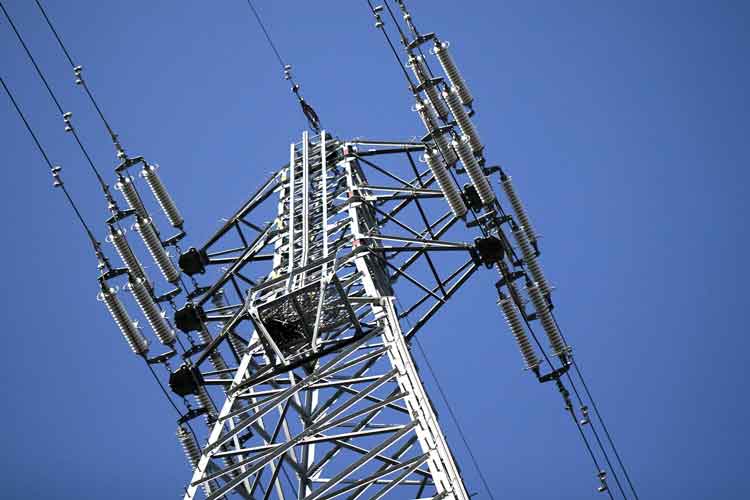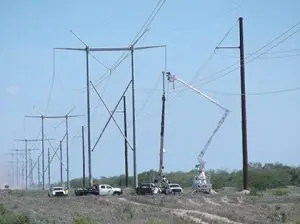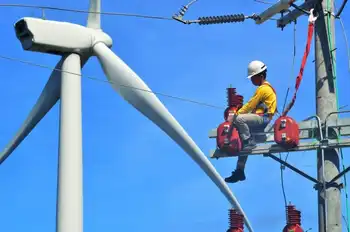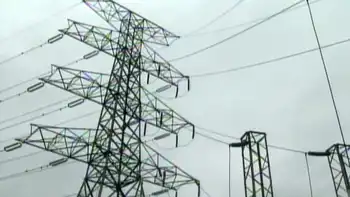Pakistan building nuclear reactor: Watchdog
By Associated Press
Protective Relay Training - Basic
Our customized live online or in‑person group training can be delivered to your staff at your location.

- Live Online
- 12 hours Instructor-led
- Group Training Available
A picture taken June 3 shows work progressing rapidly on the reactor at the Khushab nuclear site, 160 kilometres southwest of the Pakistani capital Islamabad, the Institute of Science for International Security said recently.
The development of the reactor and other nuclear-related activities "imply" Pakistan has decided to "increase significantly its production of plutonium for nuclear weapons," the Washington-based institute said in a report analyzing the images.
A senior official at the Pakistan Atomic Energy Authority said the country is "extending our infrastructure" but declined to address the details of the report.
"We are a declared nuclear state and we are pursuing our nuclear program for peaceful purposes," said the official, who asked he not be named.
"We are doing it for our national interests."
Pakistan has stated repeatedly it will develop its nuclear program and maintain an atomic arsenal to deter India, its more powerful neighbour, despite past leaks of sensitive technology to countries including Iran.
The report, co-authored by former UN inspector David Albright, said Pakistan may have decided to produce more plutonium for lighter warheads for cruise missiles, or to upgrade weapons aimed at Indian cities.
Most Pakistani nuclear weapons use highly enriched uranium, it noted.
Albright said the work on the reactor shows the country is trying to improve its nuclear capabilities with a "new generation" of plutonium-based weapons.
Plutonium-based weapons pack more explosive power into smaller, lighter packages than those made with uranium, which Pakistan has been using for years, Albright said.
"The work on these reactors reflects a Pakistani decision to create a new generation of nuclear weapons. By going plutonium... we have to interpret that as an attempt to make smaller, more powerful weapons that are going to be more destructive in India," Albright said in a telephone interview.
The Pakistani official declined comment on what Pakistan might do with extra plutonium.
The report said with India also trying to expand its ability to enrich uranium, Pakistan's activities "should be viewed as a sign of an accelerated nuclear arms race between India and Pakistan."
It also accused the U.S. government of soft-pedaling the risk to avoid endangering Islamabad's co-operation against terrorism and a proposed nuclear pact with India.
"The bottom line for us is that the U.S. isn't doing enough to stop these countries from expanding their nuclear arsenals. They're turning a blind eye," said Albright.
The institute said it used commercially available satellite imagery to conclude Pakistan is building a third nuclear reactor at Khushab.
A first reactor entered service in 1998 and a second one, begun between 2000 and 2002, was still under construction earlier in June, it said in the report. The third and newest reactor has sprung up rapidly just a few hundred metres away, it said.
The images also purportedly show work progressing on a plutonium reprocessing facility at Chashma, 80 kilometres to the west.
A report by the same institute about the second reactor at Khushab, saying it could eventually produce enough fissile material for 50 atomic bombs a year, prompted the U.S. government last July to urge Pakistan not to expand its nuclear weapons program.
Pakistan conducted its only nuclear tests in May 1998 after Indian tests earlier that month. India detonated its first nuclear bomb in 1974.
The two countries came close to open conflict in 2002, fuelling fear of the world's first nuclear exchange, after terrorists attacked India's Parliament. New Delhi accused Islamabad-backed militants of carrying out the attack but Pakistan denied the claims. Both countries have since embarked on a stop-start peace process.
In February 2004, Abdul Qadeer Khan, considered to be the father of Pakistan's atomic program, confessed to giving nuclear technology to Iran, North Korea and Libya.
Pakistani President Gen. Pervez Musharraf pardoned Khan and U.S. officials regularly praise Islamabad's role in helping prevent nuclear smuggling.











